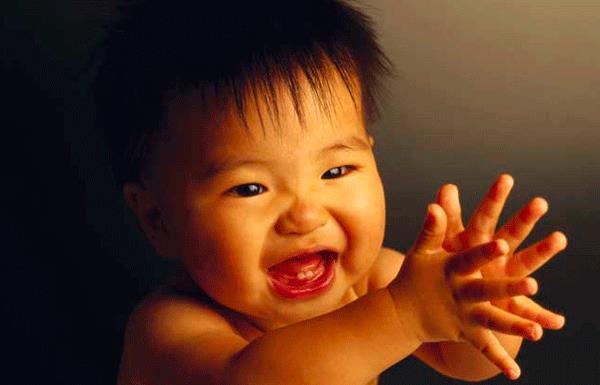The milestones of infant development are always the first concern of parents. The most obvious example of a "delay" is compared to a neighbor's child. Just clapping, waving or pointing only hurts.
content
She clapped her hands, pointed her hands, and waved hello like a landmark
Factors that can delay a child's development
Vision problems
Babies who grow up every day are more exciting than the competition with their own children. But the most regrettable thing is that parents still come together and ask: "Why is my baby retarded? Why can't the baby do this? ”
She clapped her hands, pointed her hands, and waved hello like a landmark
Children practice speaking before learning how to use the hands skillfully. This often makes many parents question and worry. But pediatricians also think that the time when your baby starts to just wave his hand can change, usually between 8-12 months.
Clapping, waving and pointing are considered important milestones for the doctor to confirm the baby's vision and develop motor skills. However, don't blame yourself if your kids haven't done all three. That is not the fault of the parents.

Each infant has a different developmental milestone, don't compare
Some kids develop more slowly than their peers. Even the legendary Einstein was mistaken for a child with a delay when he could speak very late. But if you really want to encourage these milestones, try one of the following methods:
Talk to your kids : Don't forget to say goodbye to your kids when you leave home. When your baby does something nice, don't forget to reward it by clapping your hands and teaching your baby to hold hands and clap sounds.
Encourage your baby to explore by hand : Choose a jigsaw or puzzle so that your baby can use his hands well. Have your baby play a toy piano and press the music buttons. Or ask your baby what toy he likes and teach him to point his index finger to take it.
Improve finger recognition: Teach your baby to position his eyes, nose and mouth. Let your baby point them out on his face and then identify them on your face. Make this game a fun game to reinforce identity.
Factors that can delay a child's development
In order for the parenting process to become easy and help the baby catch up with the development momentum with friends, parents need to know exactly the common factors that slow down the child's development, especially pointing and waving. and clap your hands.
Here are 4 main factors:
Vision problems
An infant's vision develops from a young fetus. After giving birth, your baby can see the mother's face if she is close enough. Vision changes gradually and clearly see everything around you by 6 months old. Eye and body coordination motor skills should be developed before your baby turns one year old.
If your child doesn't like using his or her hands at 12 months of age or older, it could be due to poor vision. Your baby may not be too concerned with what their hands can do by simply not seeing them clearly.
Babies born prematurely have higher vision problems. If your child has difficulty distinguishing faces or toys, have your pediatrician or ophthalmologist checked.
Children learn by themselves but do not express themselves
Babies do not like waving or clapping hands but instead are other characteristic expressions in their own way. Babies may just like to bang their hands on the toys they want instead of pointing. Maybe your baby has learned to speak words so badly that it doesn't have to be anything to point when she can scream to attract parents' attention.
Clapping, pointing and waving are all skills kids can learn from their parents. But sometimes, your baby learns it all by himself, but most of the time, you have to show him how to use his hands skillfully.

Encourage your baby to be more active, he will soon know how to clap his hands or wave hello
Genetic factors
Your newborn baby must be thoroughly screened and newborn screened to rule out genetic factors. Diagnosis such as muscular dystrophy and Down syndrome can significantly affect a child's development.
If you suspect your baby is becoming more clumsy than usual and has delayed his physical and communication skills, take him to the pediatrician.
Autism
Autism can be diagnosed with special signs. Typical oddities of autism can be observed as early as 9-12 months of age. Early signs of autism can include lack of eye contact and disobedience to the parent's index finger.
The child may also have missed clap or wave markers. Babies are not interested in playing with parents and are not interested in imitating sounds or gestures. There are many factors that contribute to autism. But if your child exhibits one or more of these signs, notify the doctor.

Autism in children, a challenge to recognize and cure Autism signs in children usually appear early in the early years of life, usually when the baby is several months old. It is also difficult when you want to distinguish between autism and baby's physical development.
Infant developmental milestones are always very clear. If your baby does not keep up or shows slow performance compared to many of his peers and you are concerned, do not hesitate to go to the pediatric center to check.














